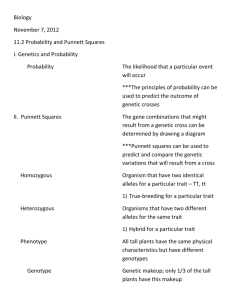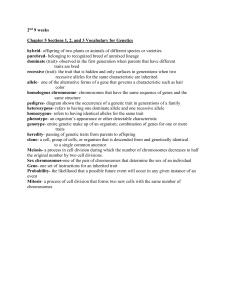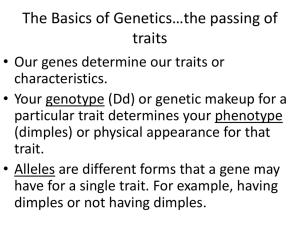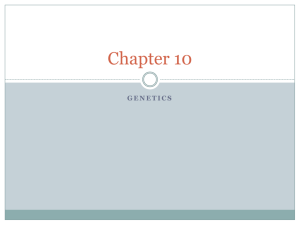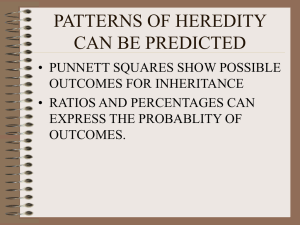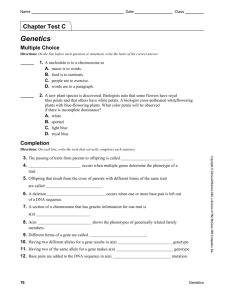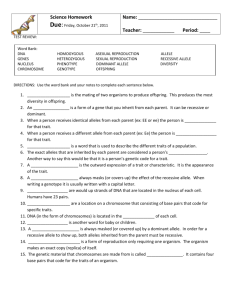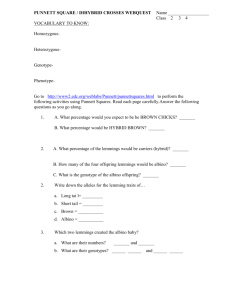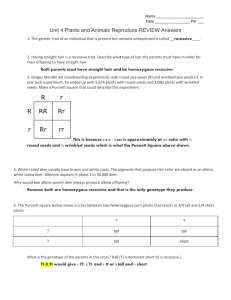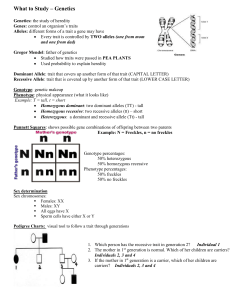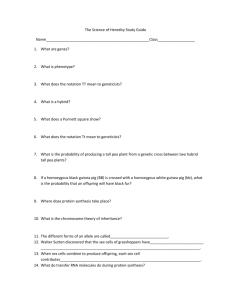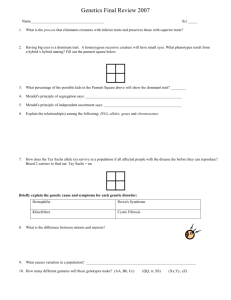Name Date Per ___ Unit 4 Plants and Animals Reproduce REVIEW
advertisement
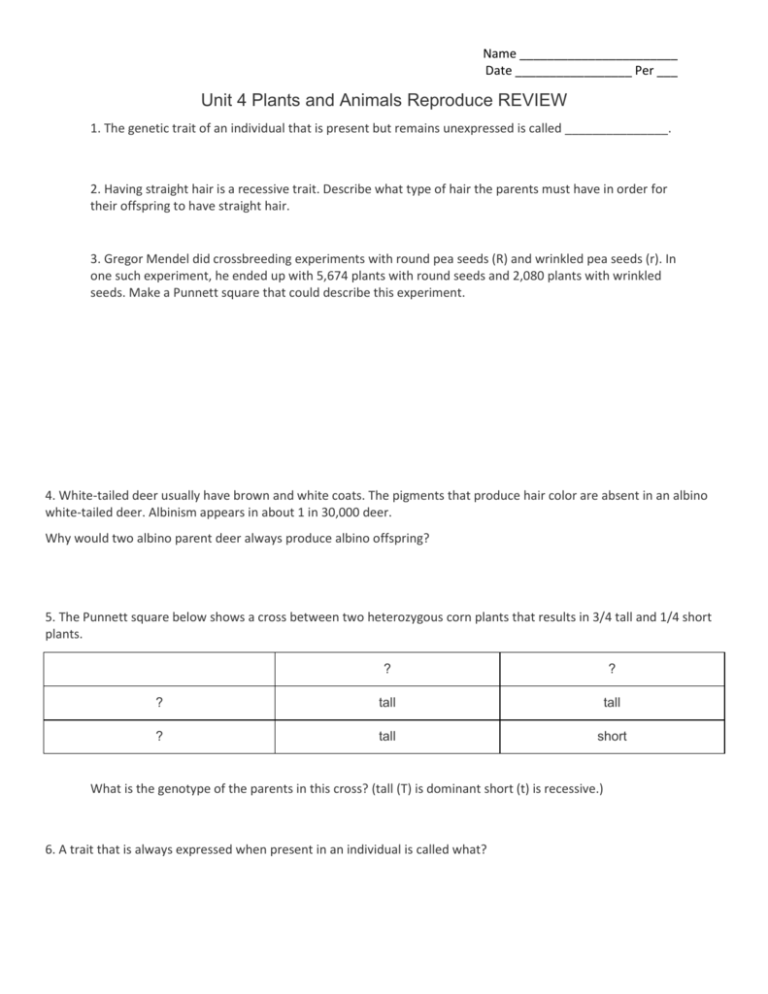
Name _______________________ Date _________________ Per ___ Unit 4 Plants and Animals Reproduce REVIEW 1. The genetic trait of an individual that is present but remains unexpressed is called _______________. 2. Having straight hair is a recessive trait. Describe what type of hair the parents must have in order for their offspring to have straight hair. 3. Gregor Mendel did crossbreeding experiments with round pea seeds (R) and wrinkled pea seeds (r). In one such experiment, he ended up with 5,674 plants with round seeds and 2,080 plants with wrinkled seeds. Make a Punnett square that could describe this experiment. 4. White-tailed deer usually have brown and white coats. The pigments that produce hair color are absent in an albino white-tailed deer. Albinism appears in about 1 in 30,000 deer. Why would two albino parent deer always produce albino offspring? 5. The Punnett square below shows a cross between two heterozygous corn plants that results in 3/4 tall and 1/4 short plants. ? ? ? tall tall ? tall short What is the genotype of the parents in this cross? (tall (T) is dominant short (t) is recessive.) 6. A trait that is always expressed when present in an individual is called what? Name _______________________ Date _________________ Per ___ 7. In some rabbits, black coat color (B) is dominant over brown coat color (b). Using a Punnett Square, predict the results of the monohybrid cross BB × Bb for coat color. 8. In a plant species, the allele r produces purple flowers and the allele R produces red flowers. What cross is most likely to produce an equal number of red and purple flowers? 9. A mother with freckles passes this trait on to all of her four children. The father of the children does not have freckles. Freckles are most likely controlled by what type of genes? rs 10. In pea plants, the allele for tall stems (T) is dominant to the allele for short stems (t). The Punnett Square below shows a cross between a homozygous recessive (tt) parent and a homozygous dominant (TT) parent. T T t t What is the expected distribution of genotypes of the offspring from these two parents? Tt 11. When sex cells combine to produce offspring each sex cell will contribute how many chromosomes? 12. What is a mutation? 13. If the body cells of an organism have 10 chromosomes, then the sex cells produced during meiosis would have? 14. The process in which a parent cell divides twice to produce sex cells is called 15. In a DNA molecule Thymine matches with what nitrogen base? Name _______________________ Date _________________ Per ___ 16. Why would a mutation be harmful to an organism? Write the definitions of the words below for #17 - 26. 17. Genotype 18. Phenotype 19. Alleles 20. Chromosomes 21. Genes 22. Homozygous 23. Heterozygous 24. DNA 25. Dominant Trait 26. Recessive Trait 27. What type of cells are produced during meiosis? 28. What is an advantage of sexual reproduction in the survival of a population? 29. The process where the cell grows, functions, and divides into new cells is referred to as what? 30. What is the first stage of the cell cycle where the cell grows and the DNA is copied? 31. A DNA molecule is shaped like what? 32. Define is probability? 33. What does a Punnett square show? 34. What determines the genetic code? 35. Chromosomes are made up of how many alleles? 36. Genetic disorders are caused by what?
